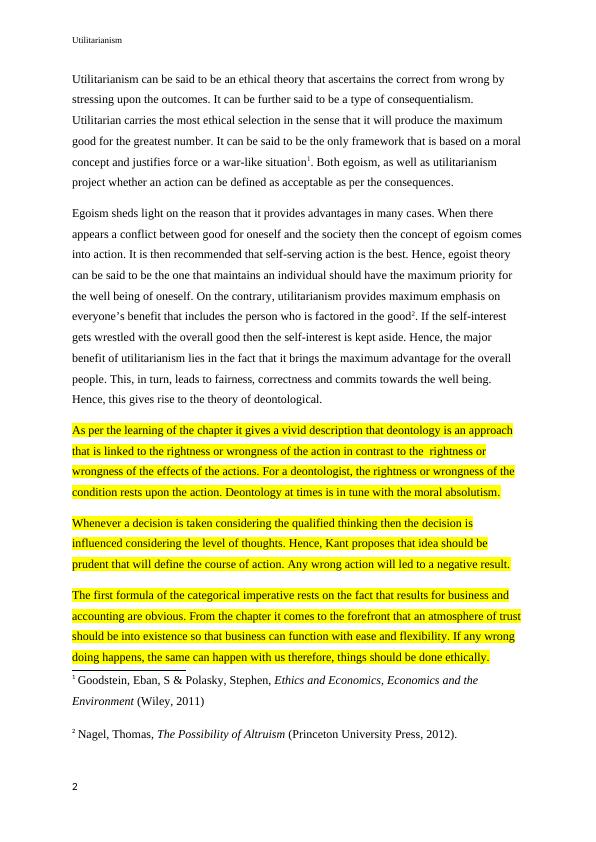Utilitarianism: An Ethical Theory Based on Outcomes
Added on 2023-06-05
4 Pages761 Words139 Views
End of preview
Want to access all the pages? Upload your documents or become a member.
Business Ethics and Issues Report 2022
|11
|2699
|23
Corporate Governance, Financial Crime, Ethics and Control
|8
|2674
|208
Ethics: Utilitarianism, Deontology, Ethical Egoism, Virtue Ethics, and Moral Theories
|5
|1281
|131
Corporate Governance And Ethics Assesment
|9
|1788
|15
Ethics Definition & Meaning
|5
|892
|31
Deontology: A Superior Ethical Theory for Professional Practice
|8
|2068
|445

